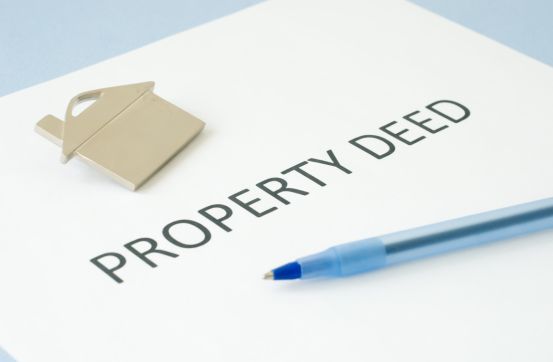Resources
For Our Attorney Partners
Simplify the Process
At SouthLake Title, we understand the complexity of real estate transactions. Our mission is to simplify the title insurance process for you and your clients. We recognize that real estate attorneys and legal staff like you manage multiple parties during each closing, which is why we've designed our services to be efficient, transparent, and client-focused.
In-House Underwriters
Our dedicated team brings comprehensive expertise to every transaction. We can quickly address and resolve any title-related challenges, ensuring smooth closings for you and your clients. Our in-house underwriters work seamlessly to provide rapid turnaround on policy lookups, binder requests, revisions, and final title policies.
Strategic Partner
We've streamlined access to all necessary documentation. You can find, review, and print forms with ease, saving you valuable time and reducing administrative burden. At SouthLake Title, we're not just processing paperwork—we're your strategic partner in delivering exceptional real estate title services.
Let us handle the title complexities so you can focus on what you do best: serving your clients and growing your business.
Commonly Needed Title Forms
- AFFIDAVIT – CORRECTIVE NOTICE OF TYPO OR MINOR ERROR
- ENHANCED-POLICY-WAIVER-BY-OWNER
- ESTATES-INTESTATE HEIRS AFFIDAVIT & INDEMNITY AGMT
- ESTATES-OPEN AFFIDAVIT & INDEMNITY AGMT
- JUDGMENT-AFFIDAVIT & INDEMNITY AGMT
- JUDGMENT-LIEN RELEASE
- MARITAL STATUS AFFIDAVIT & INDEMNITY AGMT
- NCLTA AOC ODYSSEY AFFIDAVIT – INDEMNITY – HOLD HARMLESS AGREEMENT
- PERSONAL UNDERTAKING & INDEMNITY AGMT
- POWER OF ATTORNEY – LIMITED FOR REAL PROPERTY
- POWER OF ATTORNEY – SPECIFIC REAL PROPERTY TRANSACTION
- SURVEY-WAIVER OF COVERAGE BY BUYER
- TITLE OPINION-FINAL-CTIC
- TITLE OPINION-PRELIMINARY-CTIC
- CHICAGO TITLE INSURANCE APPROVED ATTORNEY APPLICATION for NC
News, Information & Useful Links
Why We Issue an Enhanced Homeowner Policy
Due to the rise in seller fraud and impersonation schemes in the real estate and title insurance industry, we will now be issuing an Enhanced Homeowner’s Title Insurance Policy for buyers whenever it meets the criteria—unless explicitly waived by the buyer.
This change is being made to provide greater protection not only for all buyers but also for closing attorneys, given the increasing risks and complexities associated with title defects and fraudulent transactions. Below, we outline the reasons behind this decision and the numerous benefits it provides for both you and your clients.
The Growing Concern of Seller Fraud and Impersonation
Recently, we have witnessed an alarming increase in fraudulent activities, particularly involving sellers who impersonate property owners or forge documentation to execute sales. In these cases, buyers are often left vulnerable to significant financial loss, and closing attorneys can find themselves involved in post-closing disputes and even lawsuits.
The Enhanced Homeowner Title Insurance Policy provides a stronger shield against these evolving risks by offering broader protection that goes beyond the scope of a standard title policy. In light of these industry trends, we believe this added protection is critical for safeguarding your clients and your practice.
Benefits for the Buyer
- Protection Against Post-Policy Fraud and Forgery – The enhanced policy covers fraud and forgery that may occur after the closing, including scenarios where a fraudulent seller is uncovered post-sale. Without this coverage, buyers could face substantial financial losses, and the burden of pursuing the fraudulent seller falls on them. The enhanced policy takes on that risk.
- Expanded Coverage for Hidden Title Defects – The enhanced policy provides coverage for title defects that may not be visible during the initial search, such as unrecorded liens, easements, or incorrect legal descriptions. It also covers zoning law violations, building permit issues, and boundary disputes that might arise after the sale—offering peace of mind for the buyer.
- Inflation and Market Value Protection – Over time, property values often increase, and the enhanced policy adjusts to protect the buyer’s home at its current market value in the event of a claim. This ensures that your client is not underinsured if the home appreciates significantly post-purchase.
Benefits for the Closing Attorney
- Reduced Liability for Title Issues – By issuing an enhanced policy, liability for title defects, fraud, or errors shifts to the title insurer, not the closing attorney. This ensures that should any issues arise after closing—whether its fraud, unrecorded liens, or boundary disputes—the insurer takes responsibility, protecting you from potential claims.
- Defense Against Litigation – If a title defect or fraud arises after the sale, the enhanced policy includes legal defense for the buyer, which prevents costly lawsuits and disputes from involving the closing attorney. This minimizes your exposure to litigation, allowing the insurer to step in and handle the dispute.
- Protection Against Post-Sale Claims – With increased protection for the buyer, the chances of them coming back to you for redress, especially in cases of undisclosed fraud or title issues, are greatly reduced. This enhanced coverage allows your clients to resolve title claims directly with the insurer rather than pursuing the closing attorney, which limits your post-closing liability.
As a title company, it is our responsibility to ensure the best possible protection for all parties involved in a real estate transaction. The rise in fraud and impersonation cases presents new risks that can no longer be adequately addressed with a standard title insurance policy. By issuing an enhanced title insurance policy, we are proactively safeguarding your clients against the latest threats in the market, while simultaneously reducing your exposure to liability.
We believe this change is in the best interest of all parties involved. By offering a more robust title insurance product, we are protecting buyers from financial loss due to fraud and title defects, and helping closing attorneys avoid costly and time-consuming disputes.
For Our Homeowners
NC Real Estate Transaction Process Outlined
NC Real Estate Transaction Process Outlined
Pre-Closing Stages
- Property Offer & Contract
- Purchase offer submitted
- Seller accepts offer
- Due Diligence Fee and Earnest money deposit made
- Due Diligence Period
- Home inspection
- Appraisal
- Property title search
- Review of property disclosures
- Negotiate repairs or credits if needed
- Mortgage Approval
- Loan application
- Credit verification
- Income and asset documentation
- Final loan approval
Closing Preparation
- Title Search and Insurance
- Comprehensive title examination
- Attorney Issues Preliminary Title Opinion
- Title insurance Commitment issued
- Resolution, if needed, of any title issues
- Final Walk-Through
- Verify property condition
- Confirm agreed-upon repairs completed
- Ensure property is vacant and clean
Closing Day
- Document Review and Signing
- Review closing documents
- Sign legal paperwork
- Pay closing costs
- Transfer of funds
- Key Transfer
- Record deed, deed of trusts and additional documents with county
- Receive property keys
Post-Closing
- Mortgage Registration
- Property Tax Update
- Homeowner’s Insurance Activation
- Cancellation of Liens, Judgements and UCC’s
- Attorney Issues Final Title Opinion
- Final Title Policies are issued
Let’s Talk Title Insurance Policies
Let’s Talk Title Insurance Policies
Enhanced Homeowner’s Policy
- Most Comprehensive Coverage
- Protects against additional risks beyond standard policy
- The “Forward Looking” title policy.
- Includes coverage for:
- Post-policy forgery
- Encroachment issues
- Boundary disputes
- Unauthorized liens
- Increased market value protection
Standard Owner’s Policy
- Basic Property Protection
- Covers fundamental title defects
- Protects against:
- Illegal deeds
- Forged documents
- Unknown heirs
- Existing liens
- Basic ownership disputes
Lender’s Policy
- Mortgage Lender Protection
- Mandatory for most mortgage transactions
- Covers lender’s financial investment
- Protects against title defects that could impact loan
- Policy value decreases as mortgage is paid down
- Does NOT protect the homeowner’s equity
Comparing Enhanced Homeowner vs Standard Title Protection
Enhanced Homeowner TitlePolicy Deductables
- Deductible Amount: The portion of the claim the homeowner is responsible for paying before the title insurance company pays for the covered risk.
- Maximum Dollar Limit of Liability: The maximum amount the title insurance company will pay for each specific covered risk, regardless of the claim amount.
- 1% of Policy Amount: This is calculated based on the total title insurance policy amount.
Explanation of Each Covered Risk:
Covered Risk 16: (Forced correction or removal of any structures due to restrictive covenant violations)
- Deductible: The homeowner is responsible for paying 1% of the policy amount or $2,500, whichever is less.
- Maximum Liability: The title insurance company will pay up to a maximum of $10,000.
- Example: Policy Amount: $300,000 1% of $300,000 = $3,000
- The deductible is capped at $2,500 because it is the lesser amount.
- The insurance company’s maximum payment for a claim under this risk is $10,000.
Covered Risk 18: (Supplemental taxes)
- Deductible: The homeowner is responsible for 1% of the policy amount or $5,000, whichever is less.
- Maximum Liability: The title insurance company will pay up to $25,000.
- Example: Policy Amount: $500,000 1% of $500,000 = $5,000
- The deductible in this case would be $5,000, as it matches the cap.
- The insurance company’s maximum payment is capped at $25,000 for this risk.
Covered Risk 19: (Survey coverage without a survey for Covered Risks)
- Deductible: The homeowner is responsible for 1% of the policy amount or $5,000, whichever is less.
- Maximum Liability: The title insurance company will pay up to $25,000.
- Example: Policy Amount: $500,000 1% of $500,000 = $5,000
- The deductible in this case would be $5,000, as it matches the cap.
- The insurance company’s maximum payment is capped at $25,000 for this risk.
Covered Risk 21: (Actual vehicular and pedestrian access based on legal right)
- Deductible: The homeowner pays 1% of the policy amount or $2,500, whichever is less.
- Maximum Liability: The title insurance company’s liability is capped at $5,000.
- Example: Policy Amount: $300,000 1% of $300,000 = $3,000
- The deductible would be $2,500, since it is capped at the lesser amount.
- The insurer’s maximum liability for this risk is $5,000.
News, Information and Useful Links

Deed for $4M Home
Complete stranger obtains deed to $4M North Carolina home without homeowner's knowledge

NC Fraud Alerts
SIGN UP HERE
for the NC Fraud Detection Alert System
For Our Trusted REALTORS®

Seller Impersonation Fraud
Watch For Red Flags

Comprehensive Coverage Comparison
Standard vs Enhanced Policies
The Title Commitment: A Guide for REALTORS®
What Is a Title Commitment?
A title commitment is a report showing the current status of a property’s title and outlining what the title insurance will cover after closing.
Key Sections of a Policy Commitment
- Schedule A
- Property address
- Current owner
- Purchase price
- Proposed insurance amount
- Name of proposed insured
- Schedule B-I
- Requirements to issue policy
- Items needed before closing
- Examples: deed preparation, payoff letters, tax payments
- Schedule B-II
- Exceptions to coverage
- Items that won’t be covered
- Examples: utility easements, HOA restrictions, recorded leases
Brief Explanation for Your Buyers
- Title commitment shows what they’re getting
- Lists potential issues needing resolution
- Identifies restrictions that stay with property
- Reveals what final title policy will/won’t cover
Watch For These Potential Issues
- Liens or judgments
- Boundary disputes
- Access issues
- Unresolved ownership claims
- Estate and Heirship Issues
REALTOR® Resources
- Title Insurance Information for Your Buyers
